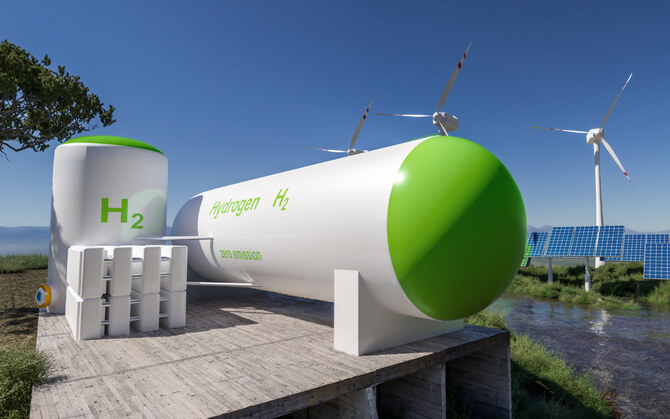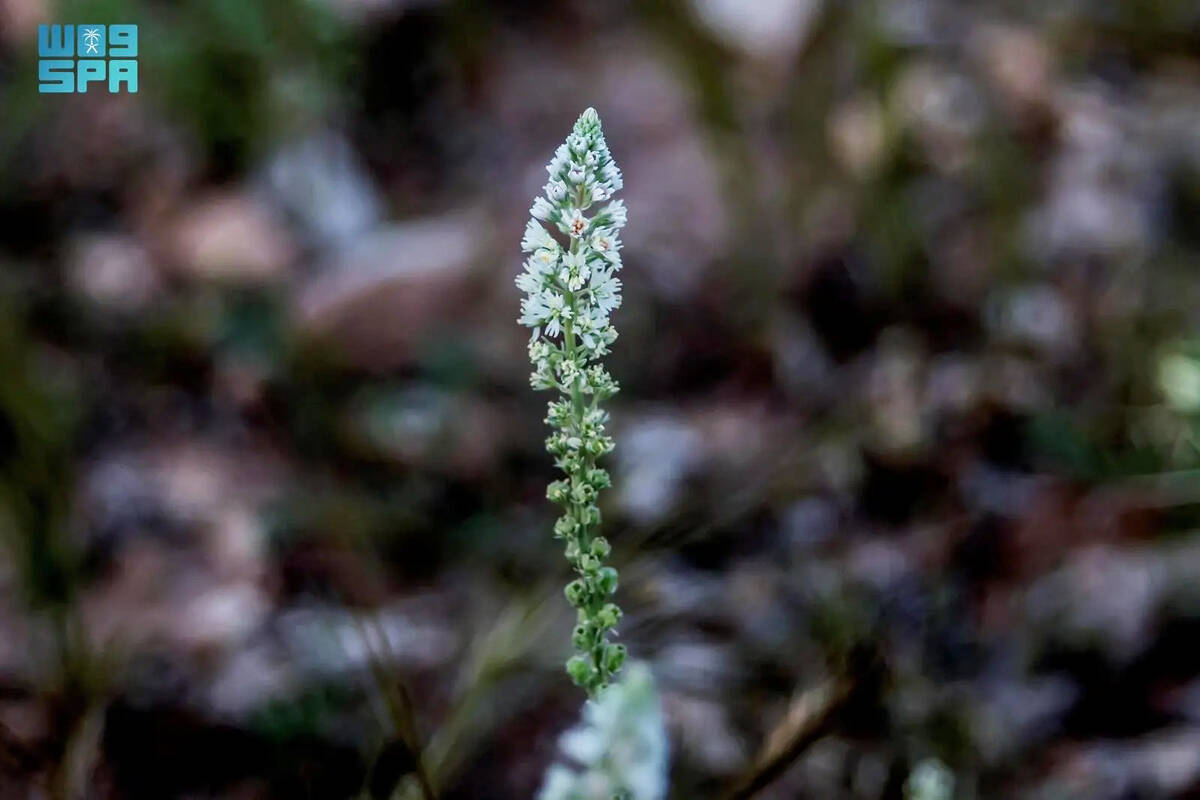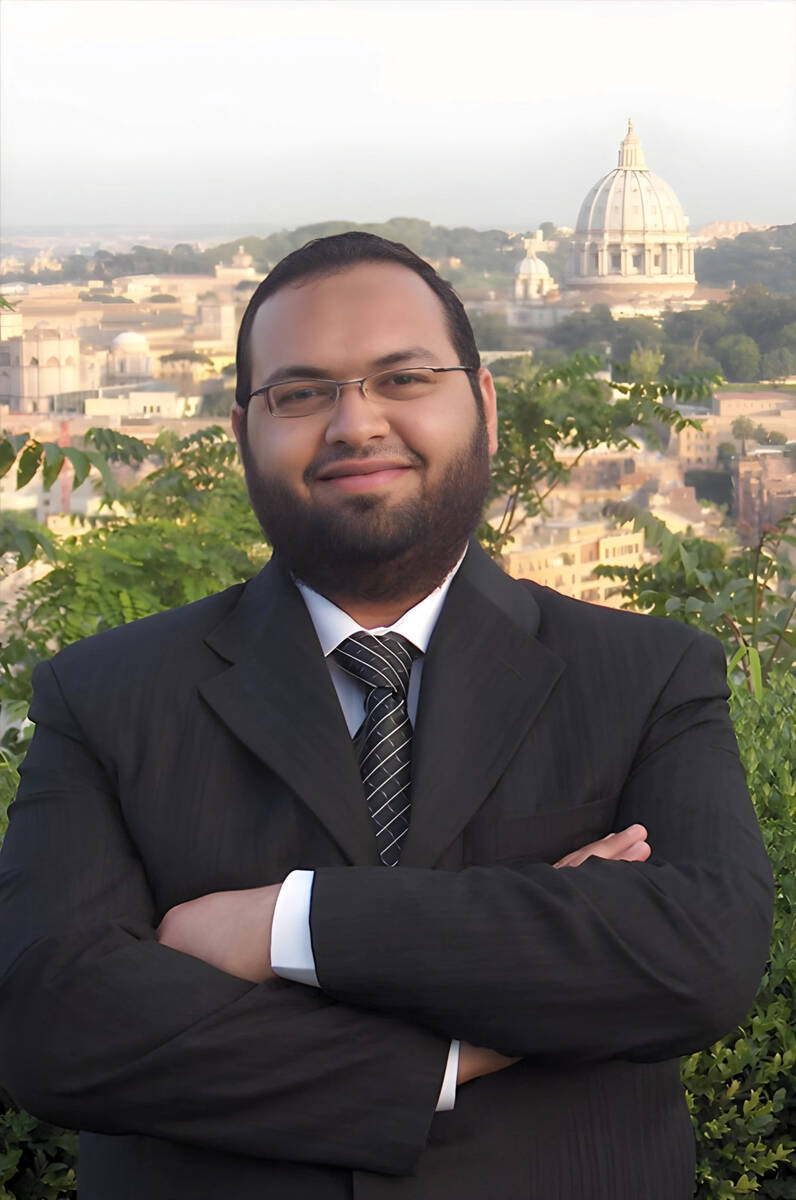RIYADH: As global efforts to combat climate change intensify, Saudi Arabia is making bold strides in green hydrogen production, positioning itself as a world leader in the manufacture and export of sustainable energy.
At the heart of this transformation is the NEOM Green Hydrogen Company, a key component of Vision 2030, the Kingdom’s blueprint for diversifying its economy away from oil and achieving sustainability.
Green hydrogen, produced by splitting water into hydrogen and oxygen using renewable energy sources like wind and solar power, has emerged as a critical solution in the fight against climate change.

Unlike gray or blue hydrogen, which are produced from natural gas and emit carbon dioxide or require carbon capture technologies, green hydrogen offers a zero-emissions alternative that can be used across various sectors, from transportation to manufacturing and energy storage.
As part of Saudi Arabia’s long-term energy strategy, NGHC is harnessing the country’s abundant wind and sunshine to produce green hydrogen on a massive scale.
The initiative will not only help Saudi Arabia reduce its domestic carbon footprint but also position the Kingdom as a major global supplier of green hydrogen, helping other countries reduce their emissions.
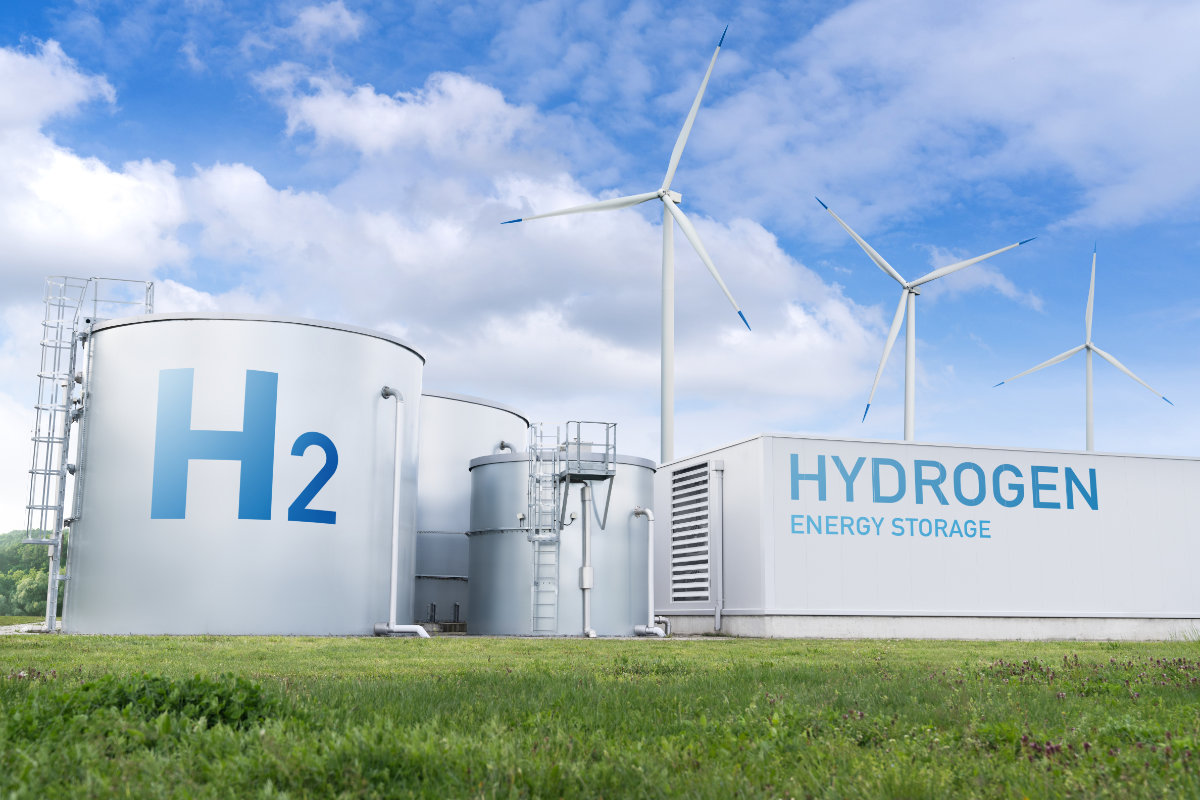
To ensure that its green hydrogen plant is carbon-free, NGHC produces hydrogen only from solar and wind, said CEO Wesam Al-Ghamdi. (Shutterstock photo)
In an exclusive interview with Arab News, Wesam Al-Ghamdi, CEO of NGHC, described how NGHC’s and the project’s focus on green hydrogen is aligned with the broader objectives of Vision 2030.
“We are proud to say that our vision is driven by Vision 2030,” he said. “Our product, our green ammonia, will be saving the world 5 million tonnes of carbon emissions.”
NGHC is set to be a cornerstone in Saudi Arabia’s green energy ambitions, producing up to 600 tonnes of green hydrogen daily using renewable energy from the vast solar and wind farms situated in NEOM — a futuristic city being built in northwest Saudi Arabia.
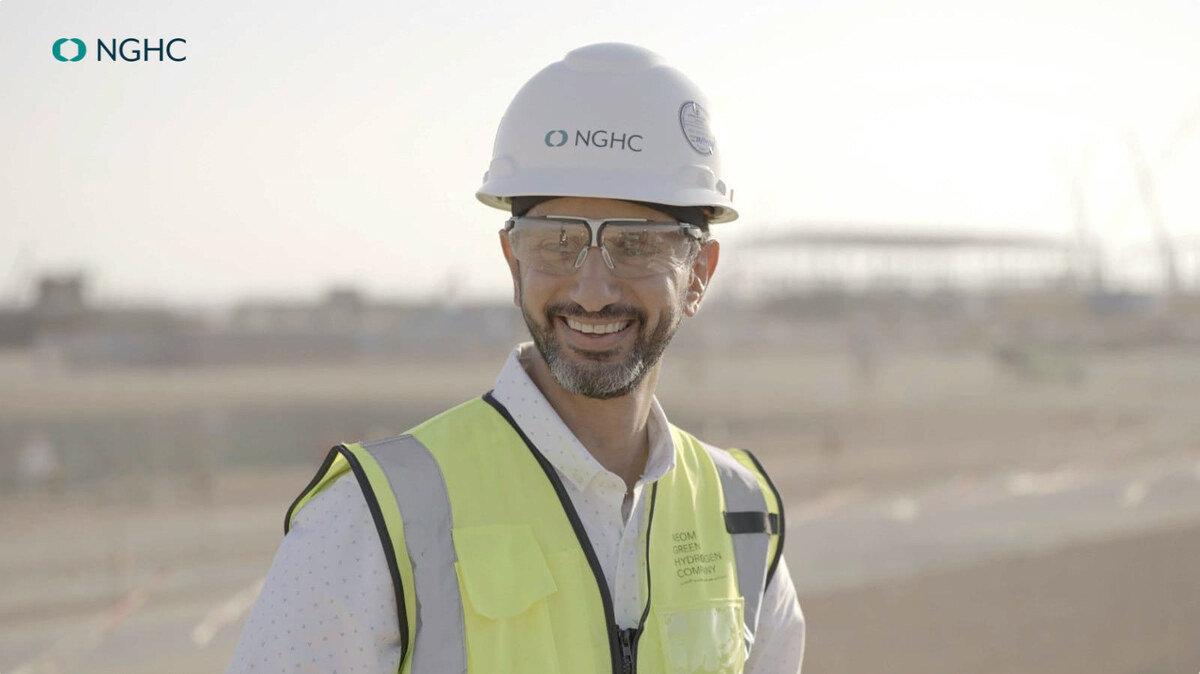
Wesam Al-Ghamdi, CEO of NEOM Green Hydrogen Company. (Supplied)
Indeed, NEOM’s geographic position, with optimal sunlight and wind conditions, makes it an ideal hub for green hydrogen production.
At the core of NGHC is its cutting-edge technology.
According to Al-Ghamdi, this will enable us to scale production at the plant to effectively support global decarbonization efforts, even within traditionally hard-to-abate sectors.

Late last year, NEOM started receiving wind turbines to power its green hydrogen plant in Oxagon, a floating industrial city under development on the coast of the Red Sea. (NEOM photo)
Additionally, ENOWA’s Hydrogen Innovation and Development Center (HIDC), located at Oxagon features a project by NGHC and will focus on R&D, training and development and will ensure the Kingdom stays ahead of evolving green energy technologies.
Al-Ghamdi stressed the entire development was designed with environmental considerations in mind. “Since we started the development and the design phase, we have been building the plant to be environmentally friendly,” he said.
While some critics argue that large-scale hydrogen production could inadvertently create environmental challenges, NGHC’s leadership emphasizes the sustainable nature of the operation
The company aims to produce hydrogen entirely through renewable energy sources, ensuring minimal environmental disruption.
“We are building the plant to be carbon-free. We are only producing hydrogen from solar and wind,” said Al-Ghamdi.
He further highlighted that environmental policies and procedures would remain central to the project as it evolved.
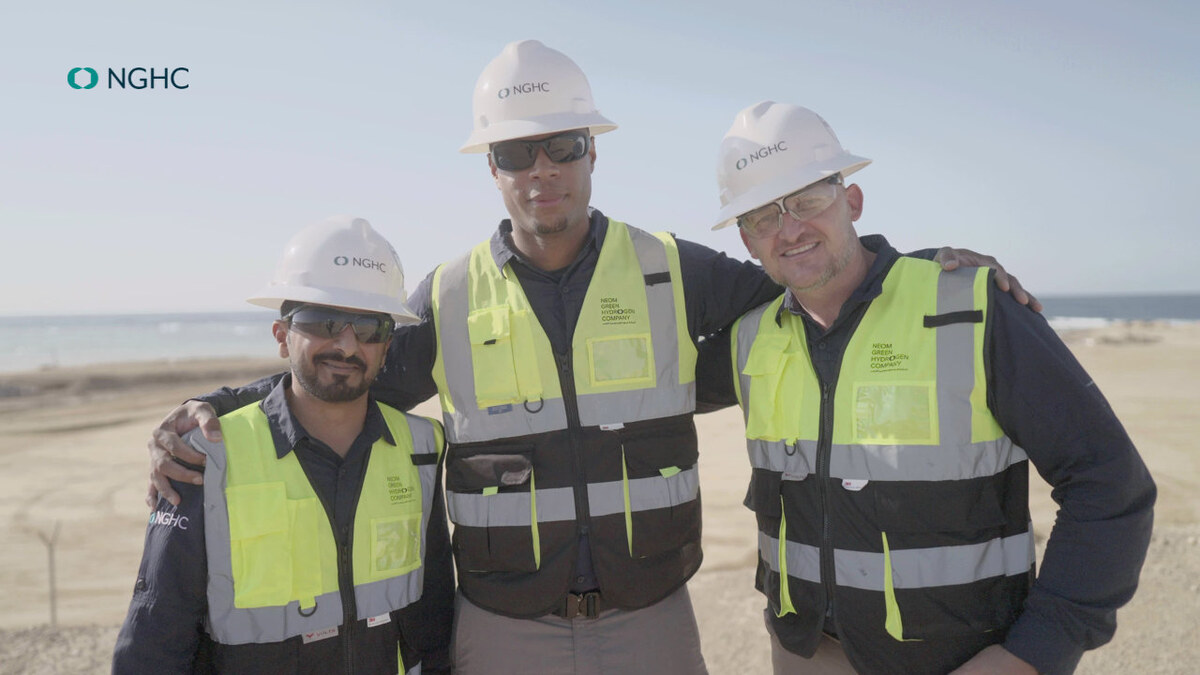
NEOM Green Hydrogen Company leaders on field visit. (Supplied)
“For the future, the keyword is reinforcement,” he said. “We build our policy, procedures and framework around starting the operations and continuing the operations to be environmentally friendly.”
NGHC’s ambitions extend far beyond the borders of Saudi Arabia. The project aims to position the Kingdom as a global leader in hydrogen production, while also creating thousands of new jobs and stimulating local economies.
These efforts reflect a broader global shift toward sustainable energy, offering a glimpse into the future of the hydrogen economy.
DID YOUKNOW?
• Green hydrogen releases zero carbon dioxide and its only byproduct is water, making it the cleanest hydrogen fuel.
• By 2030, half of Saudi Arabia’s power will come from renewable sources, including green hydrogen.
• Saudi Arabia plans to invest more than $200 billion in renewable energy by 2030, boosting green hydrogen initiatives.
International collaboration is seen as a key factor in the project’s success. By working closely with leading global industry partners, ACWA Power, Air Products, and NEOM, NGHC is ensuring it remains at the forefront of green hydrogen production.
Such partnerships are crucial for knowledge-sharing and innovation in the hydrogen sector.
“ACWA Power and their experience, deep knowledge, and renewable power continues to be a source for us,” said Al-Ghamdi.
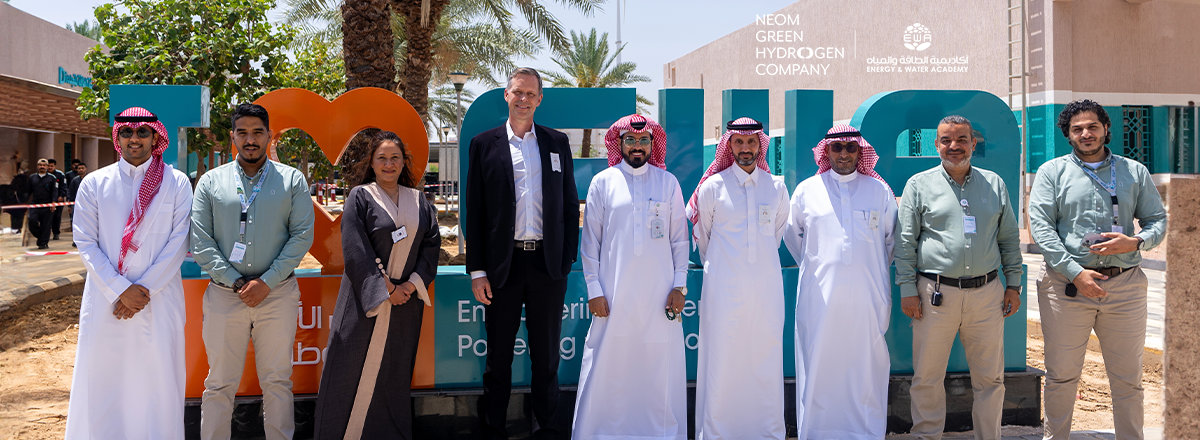
NEOM Green Hydrogen Company recently partnered with the Energy & Water Academy to train Saudi Arabia’s future green energy workforce. (NEOM photo)
For Saudi Arabia, green hydrogen is more than just a tool for reducing emissions — it is a critical element of its Vision 2030 strategy to diversify the economy and reduce its dependence on fossil fuels.
“Saudi Arabia especially, the major countries of the G20, the decarbonizing and net-zero targets, are telling us that there is nowhere to go but to decarbonize,” said Al-Ghamdi.
“No one doubts that hydrogen is the fuel of the future.”



